This edition of Privatization ‘Philly Style’ updates the 2005 publication of the same name, providing important new information and findings. Philadelphia’s diverse provider model is an intervention aimed at persistently low-performing schools. It is the result of a state takeover and a forerunner of NCLB. Philadelphia’s diverse provider model involves outsourcing school management and other services to a variety of private sector ‘providers’-including for-profit Educational Management Organizations (EMOs), local universities, and local nonprofit organizations. In education, outsourcing has traditionally involved peripheral services such as transportation, security, and food services. In Philadelphia, however, outsourcing has been extended to the core functions of public schools: the design and delivery of education. The authors rely on in-depth interviews, observations, and document analysis to describe the evolution of the diverse provider model. Although many have declared the model a success, the authors raise questions regarding the district’s capacity to monitor providers and capitalize on their diverse strengths and questions about the providers’ ability to generate robust, sustainable interventions for low-performing schools. The authors pose these questions as potential guides for a comprehensive, rigorous assessment of the model’s efficacy.
Privatization ‘Philly Style’: What Can Be Learned from Philadelphia’s Diverse Provider Model of School Management (Updated edition with important new information and findings)
Jolley Bruce Christman , Eva Gold , Benjamin B. Herold
Date: June 2006
Related Publications
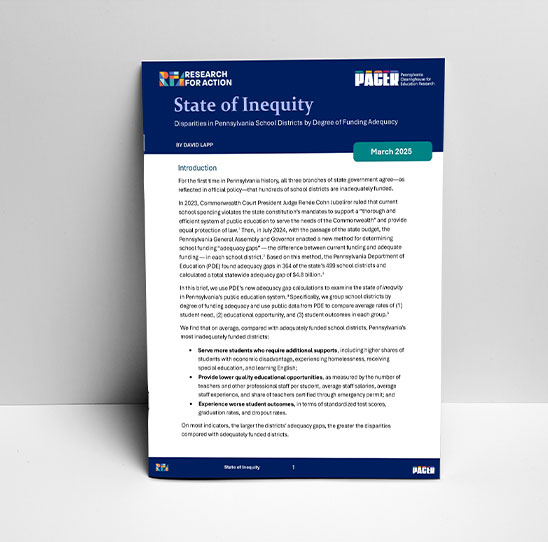
Publication
State of Inequity: Disparities in Pennsylvania School Districts by Degree of Funding Adequacy
David Lapp

Publication
Patterns of Student Mobility Among English Learner Students in Public High Schools in Philadelphia
Lindsey Liu, Sean Vannata

Publication
Interim Report 2 on the Implementation, Impact, and Cost Effectiveness of Developmental Education Reform in California’s Community Colleges
Kri Burkander, Dae Y. Kim, Mark Duffy, Lindsey Liu, Taylor Stenley, Keerthanya Rajesh, Sean Vannata
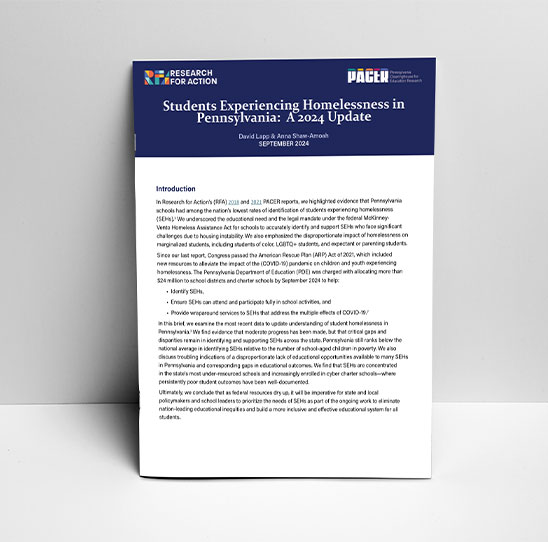
Publication
Students Experiencing Homelessness in Pennsylvania: A 2024 Update
David Lapp, Anna Shaw-Amoah

Publication
The When and How of Keystone Exams in the School District of Philadelphia
Molly Pileggi, Sean Vannata, Alyn Turner
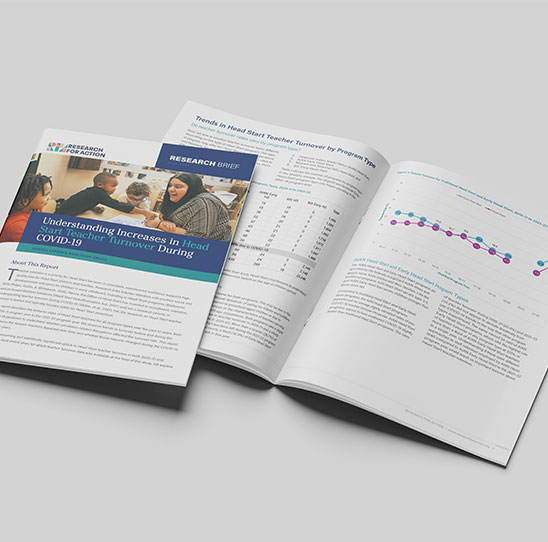
Publication
Understanding Increases in Head Start Teacher Turnover During COVID-19
Kendall LaParo, Anna Shaw-Amoah
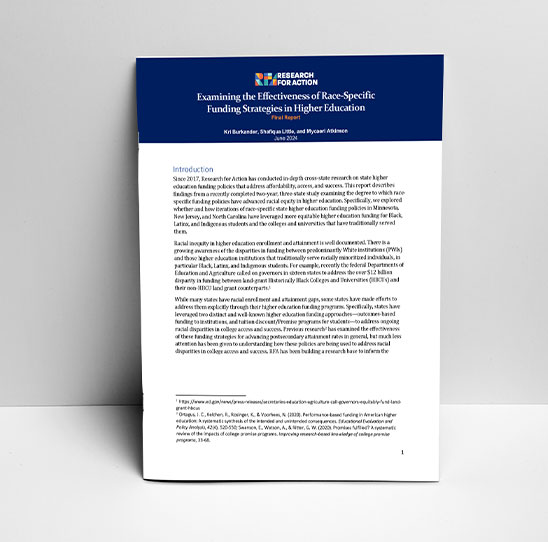
Publication
Examining the Effectiveness of Race-Specific Funding Strategies in Higher Education
Kri Burkander, Shafiqua Little, Mycaeri Atkinson

Publication
“For the Good of the City” An Early Evaluation of the Catto Scholarship
Kri Burkander, Karin Gegenheimer, Alita Robinson
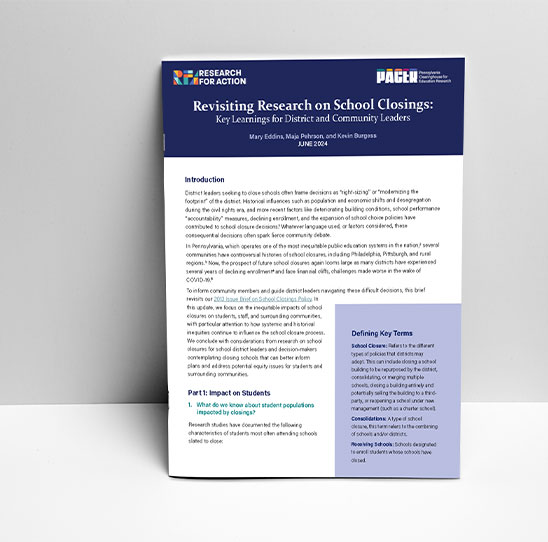
Publication
Revisiting Research on School Closings: Key Learnings for District and Community Leaders
Mary Eddins, Maja Pehrson, Kevin Burgess
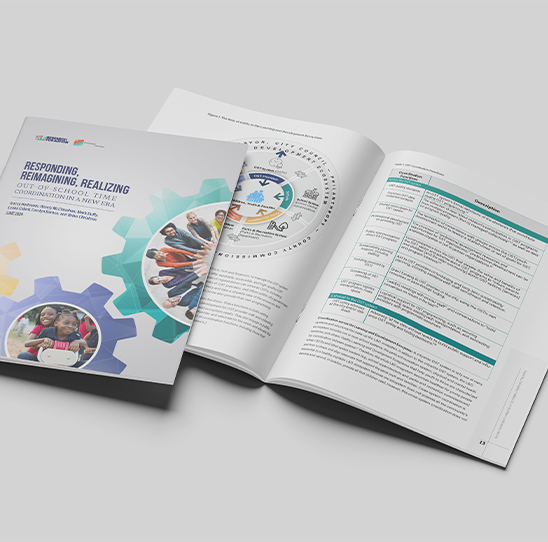
Publication
Responding, Reimagining, Realizing: Out-of-School Coordination in a New Era
Tracey A. Hartmann, Wendy McClanahan, Mark Duffy, Leana Cabral, Carolyn Barnes, Ph.D, Brian Christens, Ph.D
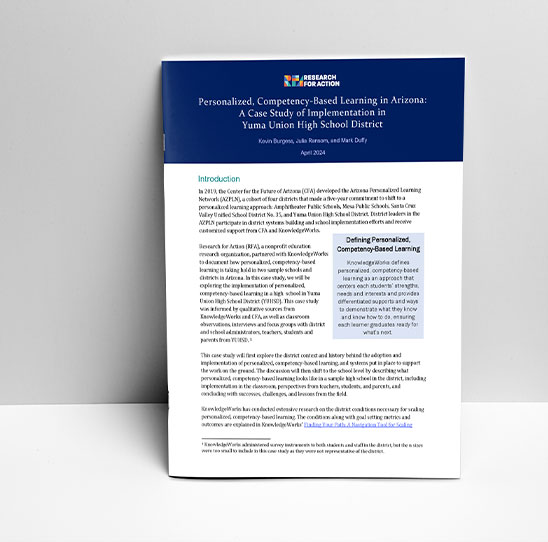
Publication
Personalized, Competency-Based Learning in Arizona: A Case Study of Implementation in Yuma Union High School District
Kevin Burgess, Julia Ransom, Mark Duffy
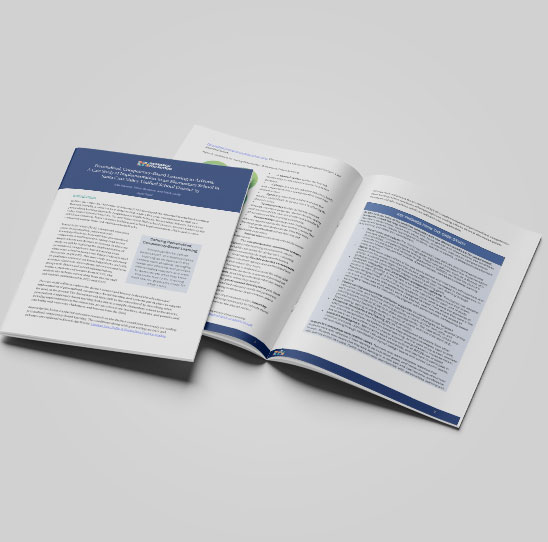
Publication
Personalized, Competency-Based Learning in Arizona: A Case Study of Implementation in an Elementary School in Santa Cruz Valley Unified School District 35
Julia Ransom, Kevin Burgess, Mark Duffy